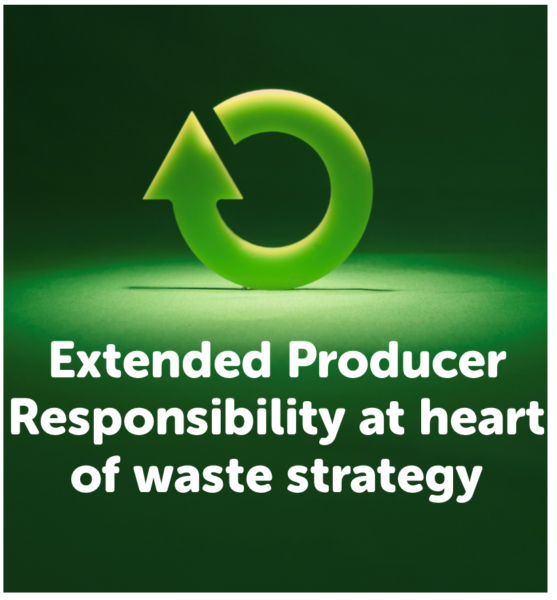Recolight welcomes Defra move to put Extended Producer Responsibility at heart of waste strategy
 Recolight welcomes signals that Extended Producer Responsibility (EPR) will feature heavily in Defra’s forthcoming Resources and Waste Strategy.
Recolight welcomes signals that Extended Producer Responsibility (EPR) will feature heavily in Defra’s forthcoming Resources and Waste Strategy.
EPR regimes make producers of new product responsible for the recycling of their products when they become waste. There are currently four EPR regimes in the UK – for waste electricals, waste batteries, waste packaging, and end of live vehicles.
There have been clear signals from Defra that the Government intends to strengthen, and build upon EPR in the UK. EPR is widely seen both as solving some of the waste funding problems experienced by Local Authorities, and as encouraging producers to adopt a circular economy approach.
Commenting on the development, Recolight CEO Nigel Harvey said “Extended Producer Responsibility is a great way to encourage joined up circular thinking through the Produce-Use-Waste cycle. It is great to see Defra putting it centre stage. But there are clear pitfalls which must be avoided to ensure effective and sustainable legislation.”
He continued by drawing attention to two key issues: “Firstly, the huge growth of product sales through online marketplaces that avoids compliance with WEEE and other EPR regimes must be addressed. Experience has shown that voluntary agreements will not work, and legislation to require compliance of online marketplaces and fulfillment houses is essential. And secondly, there is now an urgent need to review the small producer definition. Companies have been able to register as small producers, confident that their data will never be checked. Both of these loopholes need to be closed – they are likely to be the source of considerable abuse and fraud in the WEEE system.”

